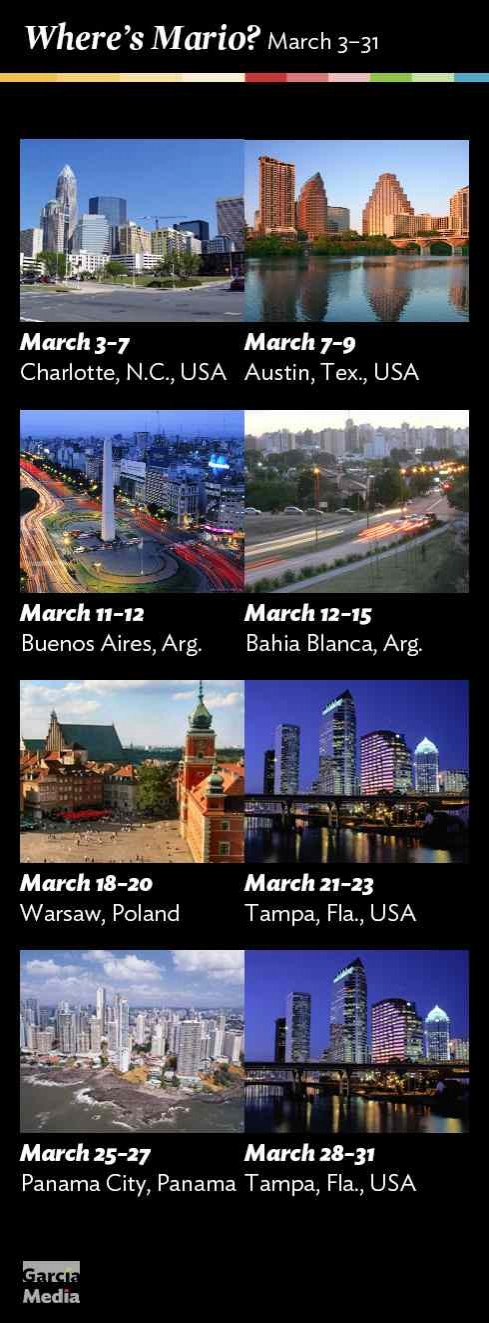TAKEAWAY: Should journalism schools offer the foundations of the practical and the ethical aspects of our profession? Or, should they be constantly updated to reflect the trends and the technology with which its graduates will have to cope in the job market? Now the question appears: what should be the qualifications for the dean of a J School in the second decade of the 21st Century?

Perhaps Michael Wolff’s evaluation of Steve Coll as new dean of the Columbia University Graduate School of Journalism is too harsh. In his USA Today column, headlined,Columbia flunks relevancy test, Wolff describes Coll as “….a very thorough and worthy writer. But, in my opinion, he’s also quite a boring one.”
That hurts, no doubt, and it is definitely Wolff’s opinion.
What does come out loudly and clearly in the column is the fact that the expectations for how a J School organizes its curriculum and hires its faculty are subject of debate—-again.
Yes, there is nothing new about questioning how journalism schools operate, their usefulness and their ability to prepare the new generation of journalists. As a former academic (Syracuse University, University of South Florida), I know well that no journalism school can ever please the critics that will insist that:
a. The faculty does not have enough practical experience to be teaching students on the art of reporting, editing, designing.
b. The curriculum is forever so outdated that graduates of J schools must be “retrained” when they get that first job. (Today’s criticism extends to IF they ever get a job).
But these were arguments of another era.
Today, and this USA Today column is a good reminder, there is less questioning of how the J school operates, and an underlying belief that perhaps it is best for J schools not to exist at all, a suggestion we find in Wolff’s column referring to Columbia:
The overriding circumstance which the J-school seems to regard as not its concern is that the news business, which it counts on to employ its graduates — newspapers, magazines, television news, even online news — is shrinking at historic rates. According to Outsell, an information industry research group, newspaper revenue has fallen by more than 40% from 2007; at the same time, television news is stagnating and online advertising rates at news sites are in steep decline. Given that this pace seems to be continuing, Columbia, raking in $58,008 in yearly tuition and fees from each student and then sending them into a world of ever-bleaker prospects, ought, more reasonably and honestly, to just shut its doors.
The new rules of the J academic game
Furthermore, while critics of J schools of the past blasted those faculty members who were too academically minded and not experienced enough in the trenches, today’s critics argue that there is no point in hiring a dean who does not tweet himself, or whose background is in publications such as The New Yorker and The Washington Post, which, in Wolff’s view “…. were once powerful voices but are now substantially less so (and, as well, less advertised in).”
I can only imagine what the reactions of those Columbia University Graduate School of Journalism faculty (and students) will be after reading the Wolff column. We are likely to see many rebuttals, and I look forward to reading them.
Storytelling should come first
My take: As I work with newsrooms globally and witness the enormous tension between traditional editors and the need to move their publications across the platforms of the media quartet, I realize that at the core of it all is storytelling.
J Schools need to emphasize this above all disciplines, but perhaps abandon the old notions of print versus broadcast versus advertising/public relations. A good storyteller is a good storyteller, so the emphasis should be on cultivating this part of the craft, while extending it to how it fits into various platforms. I don’t know of many media outlets that would hire a journalism grad who can only do print, or digital, or broadcast.
Our industry is looking for the multi platform storyteller, now it is up to J Schools to provide him/her. A good J School dean does not necessarily have to be a Twitter expert to do the job. He/She must, however, recognize that there is NOT just one single platform in which to tell that great story.
And not all stories need to be told in 140 characters, although, if you ask me, there is no better system to get someone to synthesize than asking him to write his main idea as a tweet, before developing the longer narrative that derives from it.
Works all the time. Good advice for new dean Coll. Wonder how Coll would tweet his reaction to the Wolff column.
Where’s Mario until March 31, 2013?

Mario’s upcoming speaking engagements

Take advantage of our iPad Design/Ad Lab workshops

Do you want to take your brand to the next level by creating a tablet edition? Garcia Media can help. We now offer one- to two-day iPad Design Lab workshops on demand to jumpstart your presence on this exciting new platform. We also offer iPad Ad Lab workshops to develop engaging advertising models for your app. Contact us for more information.

Purchase the book on the iBookstore